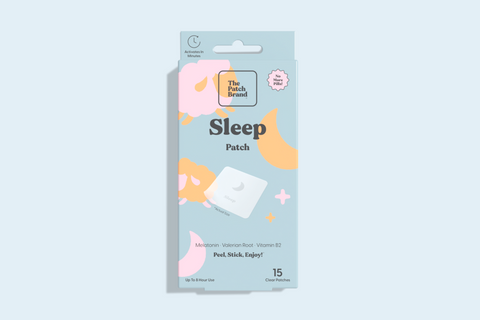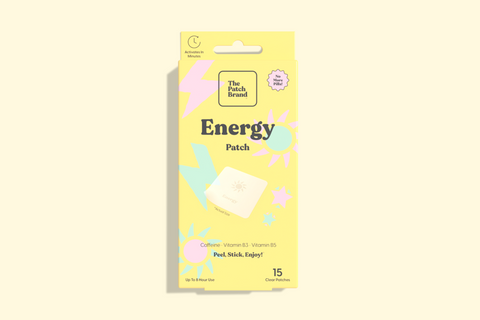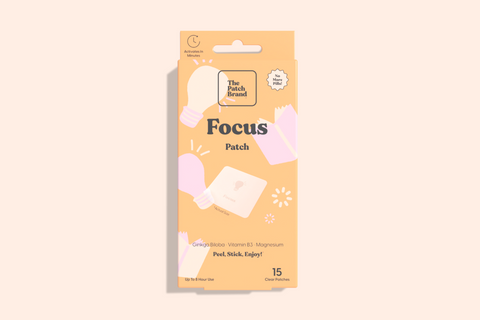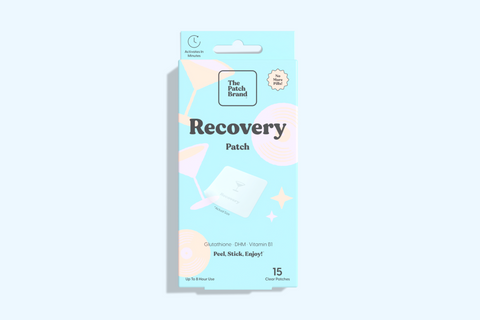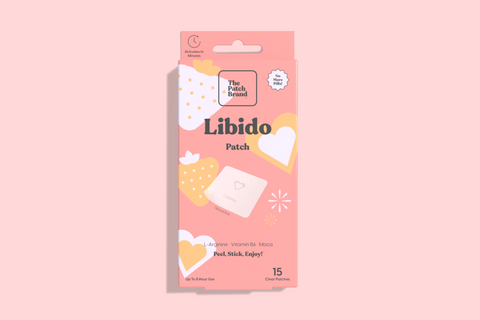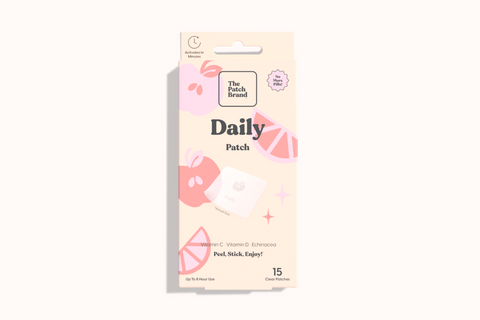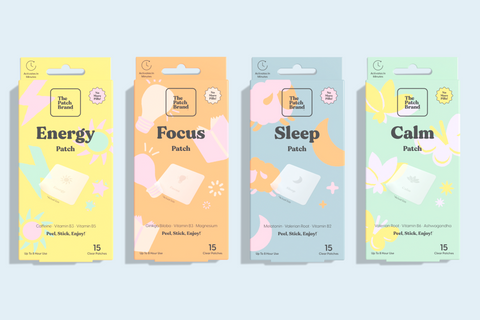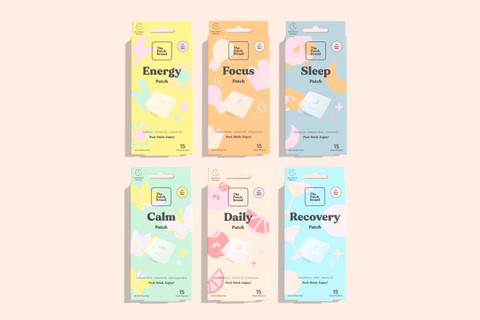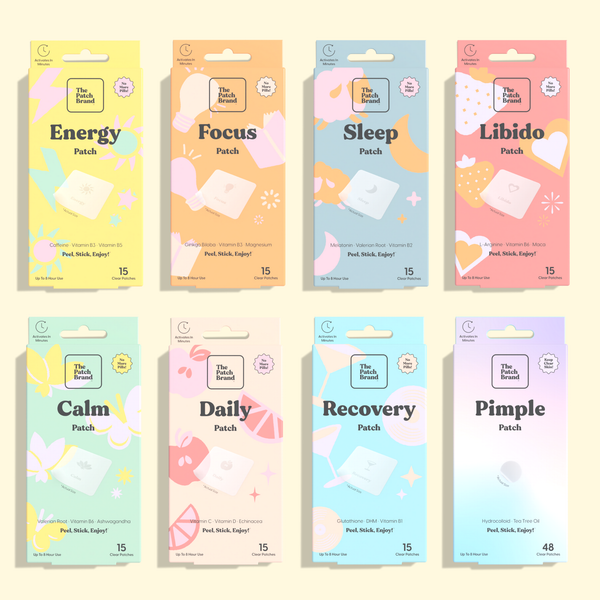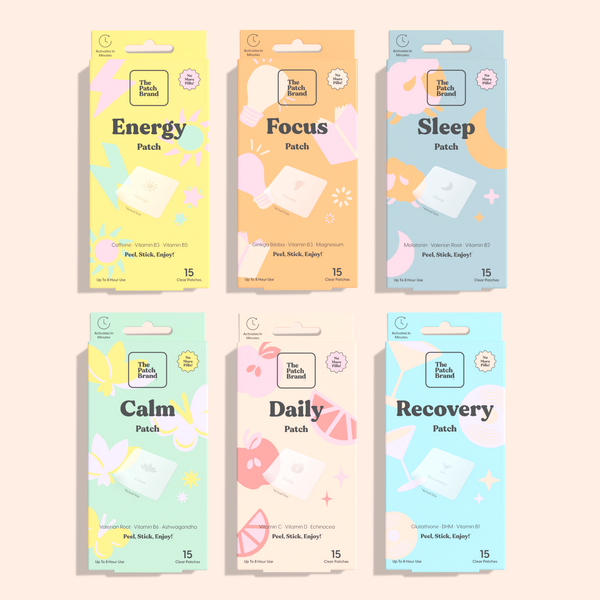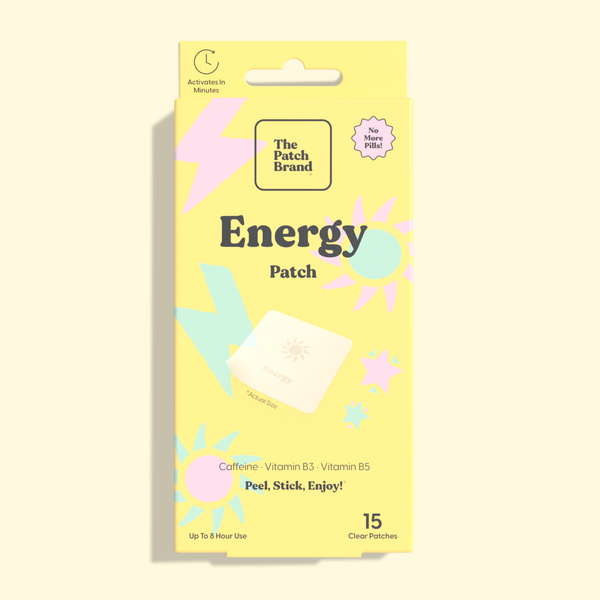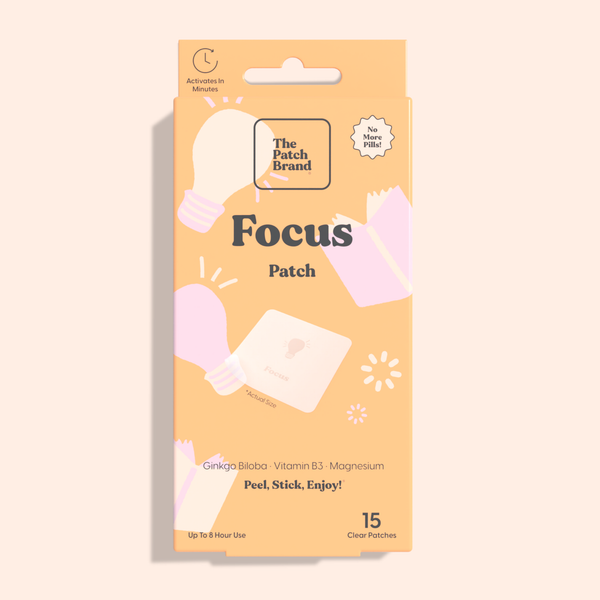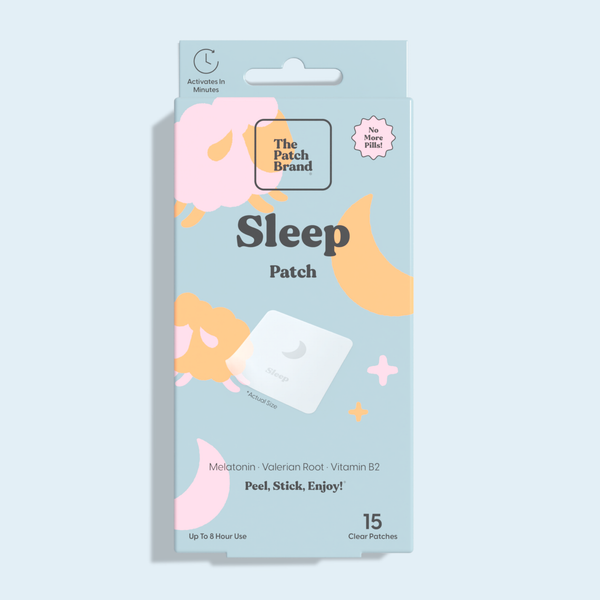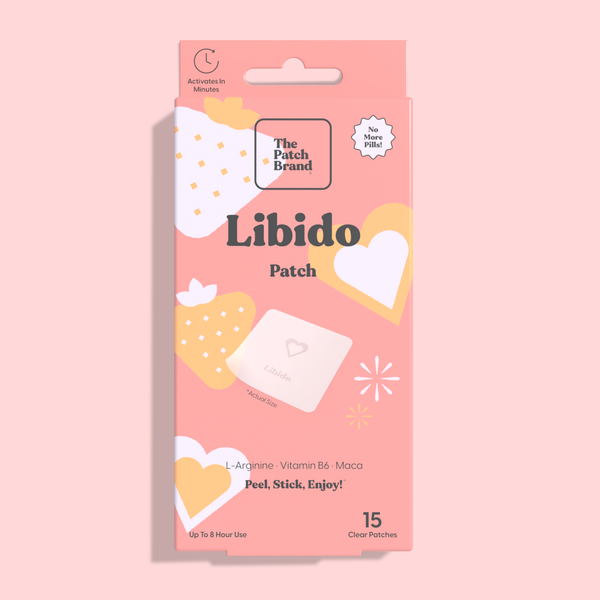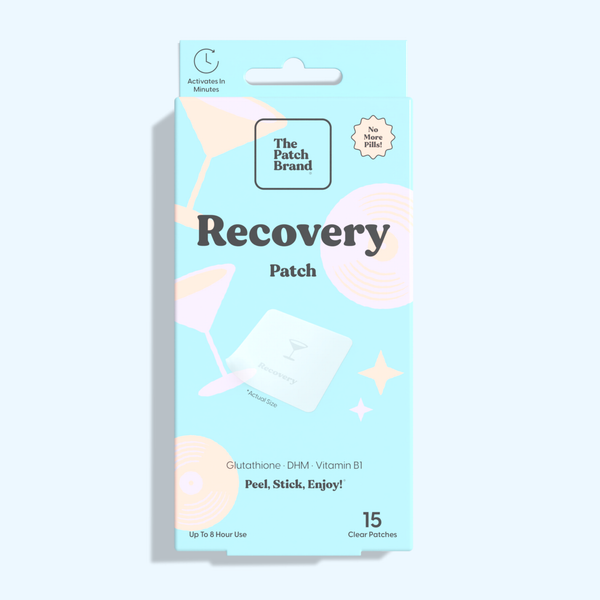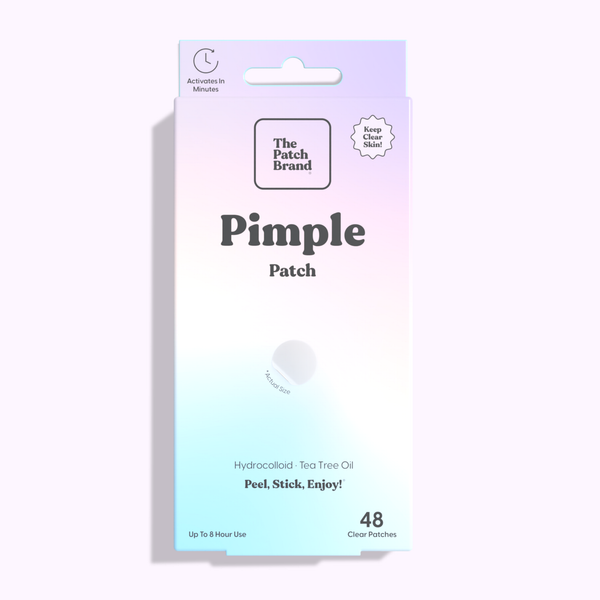The quest for a good night's sleep has never been more critical. Many of us struggle to find balance in our busy lives, often overlooking the fundamental role that our diet plays in influencing our sleep patterns. As research continues to unfold, it becomes increasingly clear that what we eat doesn't just fuel our bodies; it also conditions our sleep quality. This blog post dives into the dynamic relationship between nutrition and sleep, highlighting the necessity to understand and utilize this connection to enhance our overall well-being. By examining the specific nutrients that facilitate better sleep and discussing innovative solutions like vitamin patches, it aims to empower readers with the knowledge and practical tools to improve their sleep health naturally.
The Science of Sleep and Nutrition
A well-balanced diet goes beyond energy provision, growth, and repair. It can significantly impact your sleep quality. Specific vitamins and minerals can facilitate essential physiological processes that prepare your body for restful sleep. Certain vitamins play an integral role in sleep regulation. Some promote the production of sleep hormones, while others help maintain a healthy sleep-wake cycle. Understanding these vitamins can guide our nutritional choices, enhancing our chances of a good night's sleep.
Spotlight on Vitamins and Sleep
Vitamin B6 for Sleep Regulation
Among the
sleep vitamins, Vitamin B6 stands out for its crucial role in sleep regulation. Its influence extends across various biochemical processes, crucial for nighttime rest and overall well-being. Understanding the multifaceted
contributions of Vitamin B6 to sleep will illuminate why it's a vital nutrient in our diets.
-
Role in Sleep Regulation: This vitamin is vital in the synthesis of serotonin, a neurotransmitter that significantly impacts mood, anxiety, and sleep cycles. It helps the brain process amino acids, which are precursors to neurotransmitters, including serotonin. Serotonin levels have a direct effect on the sleep-wake cycle, influencing sleep quality and duration. By ensuring the intake of Vitamin B6, one can support the body's natural ability to regulate sleep effectively, therefore stabilizing sleep patterns and improving overall neurological health.
-
Serotonin to Melatonin Conversion: Serotonin, once produced, doesn't only play a role in mood regulation but is also the precursor to melatonin—the body's primary sleep hormone. Vitamin B6 is instrumental in this conversion process. As evening approaches, the body naturally begins to convert serotonin to melatonin, facilitated by Vitamin B6, preparing the body for sleep. Sufficient levels of melatonin are crucial for initiating and maintaining restful sleep, marking this conversion as a critical point in sleep health management.
-
Dietary Importance: The benefits of Vitamin B6 are best harnessed through dietary sources such as fish, poultry, potatoes, and non-citrus fruits, which are rich in this nutrient. Consuming these foods can help maintain the body's levels of Vitamin B6, supporting the synthesis and function of serotonin and melatonin. This, in turn, can help regulate sleep cycles more effectively. A diet lacking in Vitamin B6 can lead to diminished serotonin production, affecting sleep quality and potentially leading to disorders such as insomnia.
By highlighting the critical roles of Vitamin B6 in sleep regulation, from dietary sources to hormonal production, we can better appreciate its value in our diet. Ensuring a sufficient intake of this vitamin can lead to significant improvements in sleep quality and, consequently, overall health and well-being.
The Calming Effects of Magnesium
Magnesium is widely recognized for its ability to induce calm and relaxation in the nervous system, establishing it as a top contender among the best vitamins for sleep. This essential mineral plays a crucial role in deactivating adrenaline and reducing nerve excitability, which helps the body transition into a peaceful state, conducive to sleep. People who incorporate magnesium into their nightly routine, either through dietary sources such as nuts, seeds, leafy greens, and whole grains or via supplements, often report a noticeable improvement in the quality of their sleep. Furthermore, magnesium assists in the regulation of neurotransmitters, which send signals throughout the nervous system and play a pivotal role in calming the brain and promoting relaxation. Thus, making magnesium an integral part of your dietary intake can significantly enhance sleep efficiency and duration, especially for those who experience sleep disturbances or insomnia.

The Influence of Vitamin D
Commonly known as the "sunshine vitamin," Vitamin D exerts a profound influence on sleep health and overall well-being. Research indicates a strong link between Vitamin D levels and sleep quality, with deficiencies often associated with various sleep disorders, including sleep apnea and disturbed sleep patterns. This vitamin aids in the regulation of sleep-wake cycles by influencing sleep-inducing receptors in the brain, which enhances the quality of sleep. To ensure adequate levels of Vitamin D, it is beneficial to engage in outdoor activities that expose you to sunlight, as the skin synthesizes this vitamin upon exposure to UV rays. Incorporating foods rich in Vitamin D into your diet, such as fatty fish like salmon and mackerel, fortified dairy products, and eggs, can help maintain these necessary levels. As modern lifestyles may limit sun exposure, Vitamin D supplements are also a viable option to prevent deficiency. Adequate intake of Vitamin D not only supports better sleep but also contributes to bone health and immune function, highlighting its critical role in maintaining overall health.
An Introduction to Vitamin Patches
Vitamin patches have emerged as a popular alternative for delivering essential nutrients. These transdermal patches offer a unique method of supplementing vitamins by allowing them to permeate the skin and enter the bloodstream. Unlike traditional oral supplements that go through the digestive system, transdermal patches release nutrients directly through the skin layers. This bypasses the digestive process, resulting in improved absorption and increased efficiency of nutrient delivery. As a result, individuals may experience enhanced benefits from the vitamins contained in the patches.
The convenience and ease of use make vitamin patches an attractive option for those seeking an alternative to traditional vitamin supplementation. However, it is important to consult with a healthcare professional before incorporating any new method of vitamin supplementation into your routine to ensure it aligns with your individual needs and overall health. The
best vitamin patches, such as the
sleep patch, which present several advantages over oral supplements. They offer convenience, sustained release, and improved absorption, making them an attractive choice for individuals seeking to boost their vitamin intake.
Vitamin Patches and Sleep
The use of
sleep patches is on the rise, given their role in enhancing sleep quality. Packed with
sleep vitamins, these
patches for sleep can provide the necessary nutritional support for a good night's sleep. Sleep patches typically contain a blend of sleep-enhancing vitamins, such as B6, Magnesium, and Vitamin D. By supplying these nutrients in a controlled manner,
sleep aid patches can support better sleep and improve overall sleep health.
Practical Insights for Better Sleep
Incorporating vitamins into your daily routine for sleep enhancement requires a disciplined approach to maximize their effectiveness. By understanding and implementing specific habits around vitamin intake, you can significantly improve your sleep quality. Here’s a look at how to optimize the use of vitamins for better sleep:
-
Consistency is Key: Establishing a specific time each day to take your sleep-supporting vitamins can set a physiological clock within your body. This rhythmic consistency helps synchronize your body's internal processes, making the vitamins more effective. By taking your vitamins at the same time, you reinforce the body's natural rhythms, aiding in smoother transitions to sleep.
-
Regulate Body's Response: Regular and consistent intake of vitamins at the same time each day helps your body to efficiently process and utilize these nutrients. This consistent timing allows your body to adapt to the supplements, optimizing your internal biochemistry for better sleep. Over time, such habits help stabilize your body’s sleep-related responses, making it easier to fall asleep and stay asleep throughout the night.
-
Integrate with Sleep Hygiene Practices: To enhance the effectiveness of your vitamins, align their intake with good sleep hygiene practices. For instance, taking your vitamins an hour before reducing screen time in the evening can create a powerful routine that signals to your body it's time to wind down. This integration not only maximizes the physiological benefits of the vitamins but also reinforces habits that contribute to a restful night's sleep.
-
Monitor Effects: It’s important to track how vitamin supplementation affects your sleep quality. Keeping a sleep diary or using a sleep-tracking device can help you notice patterns and understand the efficacy of the vitamins. By monitoring your sleep, you can adjust dosages or timing as needed, tailoring the approach to suit your specific sleep needs and enhance overall effectiveness.
By taking these detailed steps, you can optimize your use of vitamins for sleep, ensuring they work effectively in concert with your body’s natural rhythms and routines. This holistic approach not only improves sleep quality but also enhances your overall health and well-being.

Dosage is an essential factor to consider when using sleep vitamins. It's important to follow the recommended dosage instructions provided on the packaging or as advised by your healthcare professional. Taking too much of certain vitamins can have adverse effects, so it's best to stick to the recommended amount. Be aware of potential interactions between vitamins, medications, and other supplements. Some vitamins may interact with certain medications, reducing their effectiveness or causing unwanted side effects. It's important to consult with your healthcare provider or pharmacist to ensure there are no contraindications or potential interactions with any medications you are taking.
A Guide to Using Sleep Patches
To maximize the effectiveness of the
best sleep patches, it is important to properly apply them to clean and dry skin. This ensures optimal adhesion and absorption of nutrients. Before applying a new patch, gently cleanse and dry the area where it will be placed. Most sleep patches are designed to be worn overnight and replaced with a fresh patch the next day. This allows for continuous nutrient delivery throughout the night. It is advisable to follow the instructions provided by the manufacturer regarding the recommended duration of use.
When applying a sleep patch, it is essential to choose a location on the body that combines minimal hair and movement. This ensures the patch remains firmly in place, enhancing its effectiveness and reducing any discomfort that might disrupt sleep. Below are three recommended areas for placing
sleep patches:
-
Upper Arm: The upper arm is an ideal spot for a sleep patch because it typically has less hair and experiences minimal movement during sleep. Placing the patch on the upper arm allows for consistent contact with the skin, which is crucial for the effective delivery of the patch's active ingredients.
-
Shoulder: The shoulder area is another optimal location for applying a sleep patch. It offers a flat, broad surface that can comfortably support the patch throughout the night. While the shoulder moves slightly more than the upper arm, it generally remains in a relatively stable position while you sleep, particularly if you are a back or side sleeper. The skin on the shoulder is typically resilient, reducing the risk of irritation from the adhesive or the active ingredients, making it a suitable choice for ongoing use.
-
Back: Applying a sleep patch to the back, especially the upper part near the shoulders, is highly effective due to the limited movement and low hair density in this area. The back provides a wide, stable surface, which is advantageous for larger patches that need more skin contact to release their contents effectively. Additionally, the back is less sensitive to patch adhesion, minimizing the likelihood of discomfort or skin damage, and it is an area that is not typically in direct contact with bedding or clothing, which can dislodge or rub against the patch.
To prevent skin irritation and maximize the absorption of nutrients, it is important to rotate the patch placement regularly. This means applying the new patch to a different location than the previous one. By rotating the placement, you allow the skin to rest and recover from any potential irritation caused by prolonged contact with the patch.
The Holistic Approach to Sleep Health
While sleep vitamin patch supplementation is beneficial, a holistic approach to sleep health is paramount. This includes maintaining regular sleep routines, managing stress, and practicing good sleep hygiene. Sleep health is multifaceted, requiring more than just good nutrition. A well-rounded approach includes physical activity, stress management, and a conducive sleep environment.
The role of vitamins and sleep patches in promoting better sleep is undeniable. As we've discussed, vitamins like B6, Magnesium, and Vitamin D can support sleep regulation, and their delivery via sleep patches can provide an efficient method of supplementation.
We encourage you to consider your nutritional intake as a critical part of your sleep health strategy. Utilizing tools like the best sleep patches can optimize your vitamin intake and improve your sleep quality. Remember, a good night's sleep starts with what you consume during the day.


